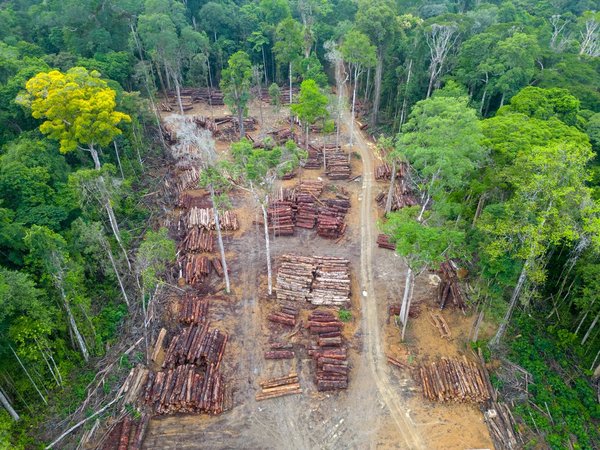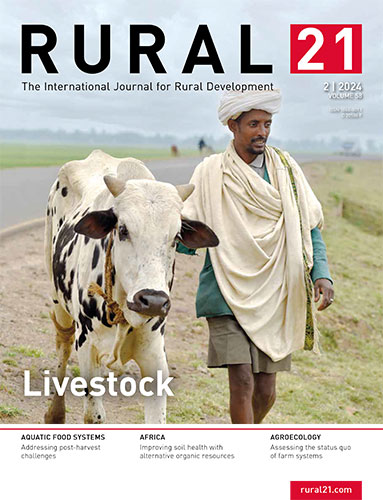- Share this article
- Subscribe to our newsletter
Environmental policy reduces violence
Environmental policy in Brazil is resulting in less violence, researches from the Insper Research Institute in São Paulo/Brazil and the University of Bonn/Germany have shown in a recent study published in August 2024.
In December 2007, the then Brazilian government passed a law to curb the illegal destruction of the rainforest, with an interesting side effect: where the measures were implemented, not only did deforestation decrease, but so did the number of homicides.
The government at the time adopted a blacklist of priority communities. It included those municipalities where deforestation was progressing particularly rapidly. The government monitors areas on the blacklist particularly closely and takes various measures to increase environmental enforcement to prevent illegal deforestation.
Violent crimes resulting in death fell significantly
Previous scientific studies have already shown that the blacklist is effective – forest loss has decreased significantly in the areas affected by this policy. However, the current analysis focuses on a different aspect. “The illegal seizure of forest areas is usually accompanied by an increase in acts of violence, reflecting the fact that the property rights over these areas are generally poorly defined,” says Dr Gustavo Magalhães de Oliveira from the Institute for Food and Resource Economics (ILR) at the University of Bonn. “We thus wanted to know whether an environmental policy, by more effectively enforcing existing Brazilian laws, also helps with reducing violence rates in the region.”
To this end, the scientists analysed the number of homicides committed in listed and non-listed municipalities. They did indeed find a pronounced effect: when a municipality was placed on the list, the number of violent crimes resulting in death fell significantly – by 17 per cent on average. However, this effect did not occur immediately, but only after some years of being blacklisted.
An increased risk for potential offenders
Why are violence against people and nature linked? One reason is that violent action is often employed in illegal markets to secure control over resources with poorly defined property rights. In this case, unscrupulous land grabbers – known as grileiros in Portuguese – take advantage of this by employing violent methods and corruption to seize large areas, clear forests and then sell the land. This brings them into conflict with groups who also have interests or actual ownership of those lands – for example with Indigenous people who have been using the affected areas sparingly for generations.
The blacklist and its associated enforcement mechanisms increase the risk for potential offenders. As a result of this deterrent effect, criminals are less likely to try to appropriate areas with poorly defined property rights, reducing the violent conflicts that often precede illegal land appropriation. So what helps nature also directly helps people.
However, this good news is clouded by more recent developments. Over the last few years, the number of homicides in the Amazon region has risen significantly again. The business opportunities in illegal markets have motivated powerful mafia groups to increasingly set foot in the Brazilian Amazon, with their particular methods of using violence to achieve economic goals, according to the researchers. Measures intended to protect the environment do not entirely alleviate the violence caused by these organised crime groups.
(University of Bonn/ile)
Read more on the Website of the University of Bonn




Add a comment
Be the First to Comment